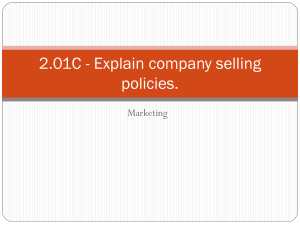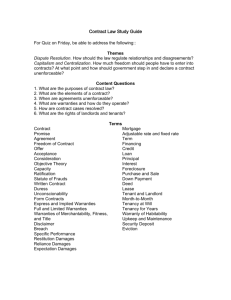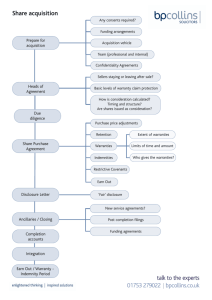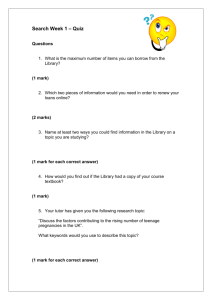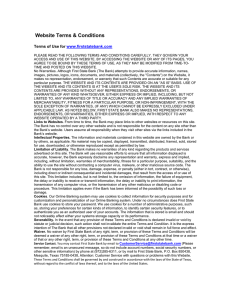Marketing PI: 2.03 EXPLAIN COMPANY SELLING POLICIES.
advertisement
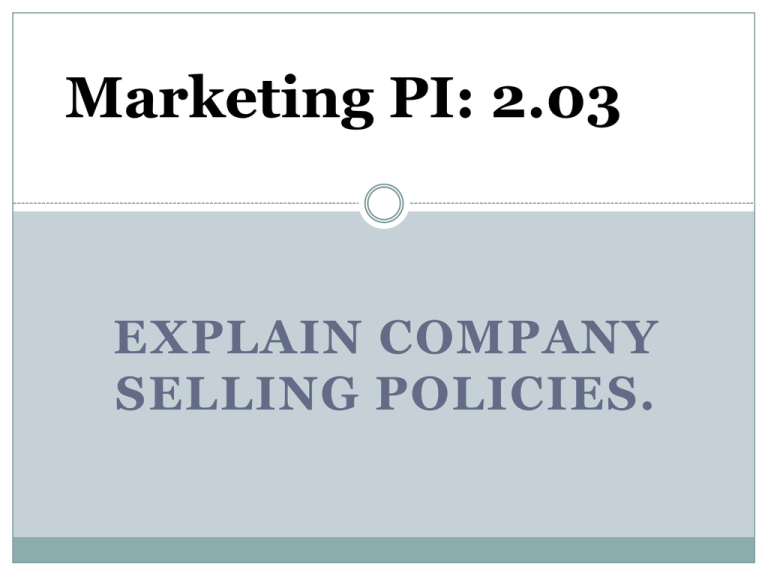
Marketing PI: 2.03 EXPLAIN COMPANY SELLING POLICIES. SELLING ACTIVITY POLICIES Selling policies: guidelines for selling. How will products be sold? How are sales tracked? Receipt, online, customer information? What is the customer given at the completion of the transaction? Are there any government rules or regulations that must be followed? TERMS OF SALE POLICIES Terms-of-sale policies: What conditions apply to each type of sale? (Think airline tickets, e-Bay, close-outs) Age, condition of customer (think “bar”), single or double occupancy. Conditions for returns (What will be allowed?) What if the dress has been worn? Deadlines for returning products (used or new car purchases, haircuts) Method of refund (including money vs. store credit) SERVICE POLICIES Service policies: guidelines for servicing customers. What is included in the sale of the product? Warranties (implied or explicit) Delivery. Training. WHY ARE SELLING POLICIES IMPORTANT? Selling policies standardize sales. Ensures that the company and the customers understand how products are sold. Protects the company, legally. WHY ARE SELLING POLICIES NEEDED? Proves that all customers are treated the same way Increases efficiency of the sales people. EXTERNAL factors that affect selling policies City, county, state and/or Federal regulations. Competitors’ actions. Changes in customer expectations. Changes in costs of producing the products. INTERNAL factors that affect selling policies Sales quotas. New management. Changes in goals. REGULATORY factors that affect selling policies The distribution channel might require specific policies in exchange for using that channel (e-Bay for example). Implicit warranties. PROBLEMS with selling policies Policies cover specific circumstances, so some situations will not fit the current policies. Misinterpretation by a salesperson. Some customers will ask for exceptions to policies in exchange for increased business or because of a history with your company.

